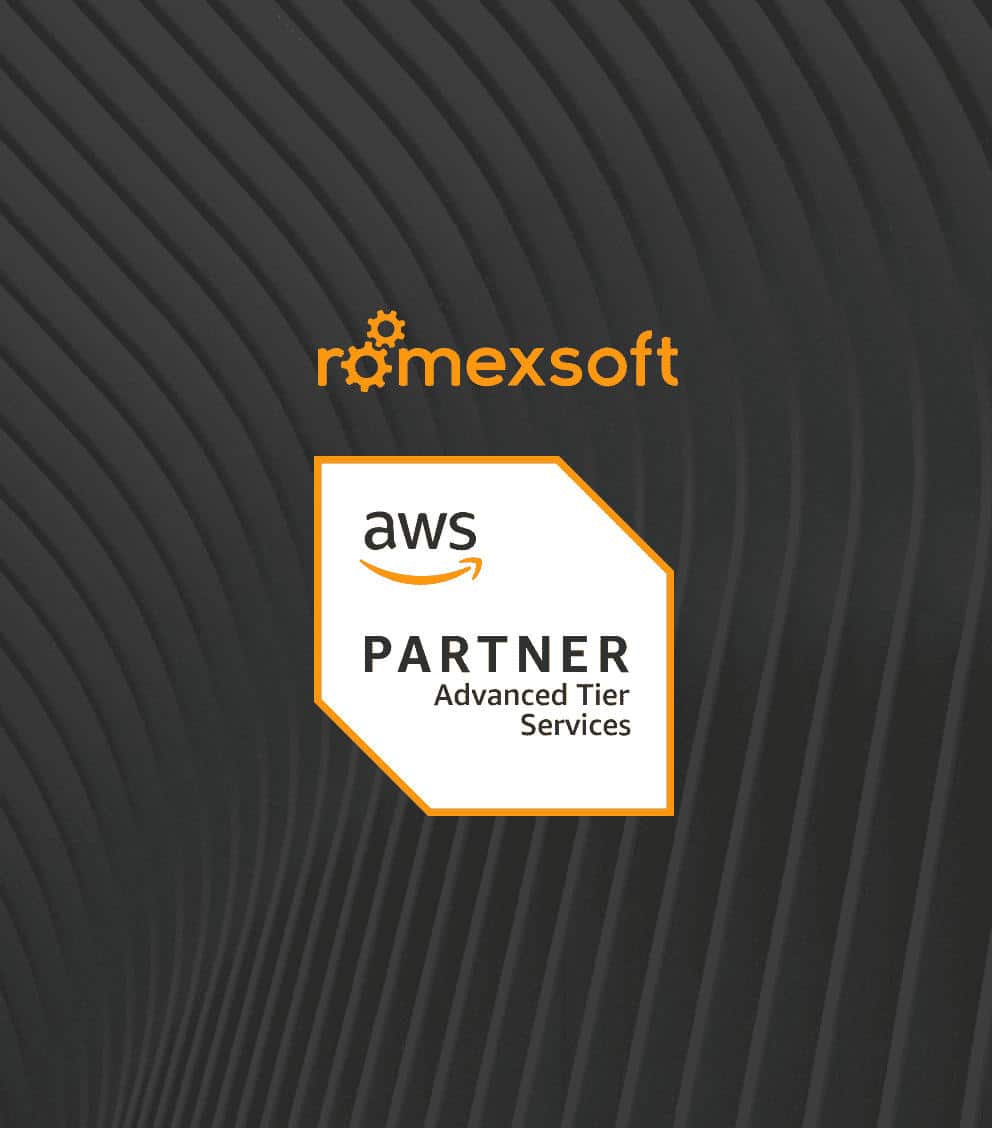Future-Proofing DevOps: Trends and Innovations Ahead
Explore the future of DevOps with a deep dive into emerging trends and innovations. From embracing AI and machine learning to the rise of hybrid cloud environments, this comprehensive guide offers insights into how DevOps is evolving and what you need to know to stay ahead of the curve.

Table of Contents
Table of Contents
Introduction: The rising significance of forward-thinking in DevOps
In the ever-evolving world of technology, DevOps stands as a transformative methodology that has redefined how software development and IT operations collaborate. The DevOps approach has been a game-changer in breaking down the silos between development and operations, leading to faster development cycles and more reliable software. As we look into the future, it’s evident that DevOps will continue to evolve, adapting to new technologies and methodologies. The key to staying ahead lies in understanding these trends and how they fit into the DevOps landscape. Forward-thinking in DevOps is not just about adopting new tools or technologies; it’s about a mindset that embraces change, values collaboration, and strives for continuous improvement. The future of DevOps is not set in stone but is a reflection of the evolving needs of businesses and the innovative tools that are being developed to meet these needs. Therefore, understanding the future trends in DevOps is crucial for any organization that aims to be agile, competitive, and resilient in a fast-paced market.
- Lean Manufacturing: Originated from the manufacturing industry, this principle focuses on waste reduction and efficiency improvement, laying the groundwork for the DevOps culture.
- Agile Development: This flexible and collaborative approach to software development has been a cornerstone in shaping DevOps practices.
These trends are the main predictions for what the future of DevOps will be.
Embracing AI and machine learning: How automation is redefining DevOps
Artificial Intelligence and Machine Learning are no longer buzzwords but essential components that are transforming the DevOps landscape. From automating mundane tasks to predictive analytics, these technologies are making DevOps smarter and more efficient. The integration of AI and ML into DevOps is not just a technological shift; it’s a paradigm change that impacts how teams think about automation, monitoring, and feedback. AI-driven analytics can provide actionable insights into system performance, user behavior, and even code quality, enabling teams to make data-driven decisions. Machine learning algorithms can predict system failures, security threats, and other issues before they happen, allowing for proactive measures. This is a significant shift from the traditional reactive approach and marks a milestone in the journey towards autonomous DevOps systems. The potential applications of AI and ML in DevOps are vast and varied, including automated testing, intelligent monitoring, and even automated code reviews. Therefore, embracing AI and ML is not an option but a necessity for modern DevOps practices.
- TensorFlow: An open-source platform that has become synonymous with building complex machine learning models.
- DataRobot: This platform automates many aspects of your machine learning workflow, making it easier to build ML models.
These tools make AI and ML more accessible to anyone looking to enhance up their DevOps.
The role of edge computing in modern DevOps architecture
Edge computing is shifting the paradigm from centralized data centers to bringing computation closer to the data source. This minimizes latency and optimizes bandwidth usage, making it particularly beneficial for IoT applications. Edge computing allows for real-time data processing, which is crucial for applications that require immediate action, such as autonomous vehicles or industrial automation systems. By bringing computation closer to the data source, edge computing also enhances security by reducing the amount of data that needs to be transmitted over the network. This is particularly important in the era of increasing cyber threats and stringent data privacy regulations. Therefore, integrating edge computing into DevOps practices offers benefits in terms of performance, security, and compliance, making it a key trend to watch in the coming years.
Shift-left approach: Ensuring security from the start
Security is no longer an afterthought but an integral part of the software development lifecycle. The shift-left approach is making security a collective responsibility that begins at the earliest stages of development. By integrating security measures into the initial phases of development, organizations can identify and address vulnerabilities early, reducing the risk of security breaches. This approach also facilitates compliance with data protection regulations, as security measures are built into the product from the ground up. The shift-left approach is not just a methodology but a cultural shift that requires collaboration between developers, operations, and security teams. It signifies a move away from siloed operations and towards a more integrated, holistic approach to security in DevOps.
- Snyk: Specializes in finding and fixing vulnerabilities in open-source dependencies, making it a must-have tool for secure development.
- SonarQube: This tool offers continuous inspection of code quality and includes security features to identify vulnerabilities early in the development process.
- OWASP ZAP: An open-source security testing tool used for finding vulnerabilities in web applications.
- GitGuardian: Monitors your code repositories for sensitive data and secrets, helping to prevent accidental leaks.
These tools make it easier to increase your security right from the get-go, and secure your DevOps.
Hybrid cloud environments: Balancing flexibility and control in DevOps
Hybrid cloud environments have emerged as a viable solution for organizations looking to balance the flexibility of public clouds with the control and security of private clouds. This approach allows businesses to strategically allocate resources, optimizing both cost and performance. For DevOps teams, a hybrid cloud offers the best of both worlds. It provides the agility to quickly deploy and scale applications while also offering the control needed to meet security and compliance requirements. The hybrid cloud is particularly useful for organizations that have to deal with varying workloads, as it allows for seamless scaling. It also offers a solution for data sovereignty issues, as sensitive data can be kept on-premises while other data and applications can be moved to the cloud. Therefore, the adoption of hybrid cloud environments is not just a trend but a strategic decision that offers multiple benefits for DevOps practices.
- VMware Cloud: Offers a consistent infrastructure and operations model across the hybrid cloud.
- AWS Outposts: Brings AWS services and infrastructure on-premises for a truly consistent hybrid experience.
These tools help you balance control with DevOps while still keeping your products flexible.
DevSecOps: Integrating security into every phase
DevSecOps is the natural evolution of DevOps, integrating security into every phase of the development lifecycle. This approach ensures that security is not just bolted on at the end but is a fundamental part of the entire process. The transition from DevOps to DevSecOps encourages collaboration between development, operations, and security teams, breaking down silos and promoting a culture of shared responsibility. This is crucial in today’s complex and ever-changing threat landscape. By integrating security into the DevOps pipeline, organizations can detect vulnerabilities early, automate compliance checks, and ensure that security is continuously monitored. This proactive approach reduces the risk of security breaches and ensures that security is always in sync with development and operations. Therefore, adopting DevSecOps is essential for any organization that takes security seriously.
- Checkmarx: Provides comprehensive solutions for identifying and fixing security vulnerabilities in the DevOps pipeline.
- HashiCorp Vault: Manages secrets and protects sensitive data, integrating seamlessly into the DevOps workflow.
These tools allow you to integrate a security-first mindset around your DevOps processes that already exist.
Conclusion: Staying ahead of the curve in the dynamic world of DevOps
The world of DevOps is in a constant state of flux, influenced by emerging technologies, methodologies, and the ever-changing needs of businesses. Staying ahead of the curve requires not just the adoption of new tools and technologies but a mindset that is open to change and continuous improvement. It’s about building a culture that values collaboration, automation, and a commitment to quality. As we look to the future, these trends offer a glimpse into the next phase of DevOps evolution. By understanding and adopting these trends, organizations can position themselves for success in a competitive and fast-paced market.
- Continuous Learning: The field is ever-changing, and continuous learning is key to staying relevant.
- Collaboration: The essence of DevOps lies in effective collaboration between teams.
- Automation: The more you can automate, the more you can focus on innovation.
- Adaptability: Being flexible and open to change is crucial for long-term success.
The following are about to become the moving fore in modern DevOps practices in the following years. And in order to apply new trends in your development in a relevant way to remain competitive, contact DevOps consulting services. This step will help you save time and provide qualified assistance.
FAQ: Securing DevOps
Artificial Intelligence (AI) is revolutionizing DevOps by introducing advanced capabilities such as predictive analytics, automated testing, and intelligent monitoring. AI algorithms can analyze vast amounts of data to predict system failures or security threats, allowing teams to take proactive measures. This level of automation not only streamlines operations but also significantly reduces the margin for human error, leading to more efficient and reliable systems.
Containerization technologies like Docker and Kubernetes have fundamentally altered the DevOps landscape by providing isolated, consistent environments for applications. This ensures that an application will behave the same way regardless of where it is run, eliminating the "it works on my machine" problem. This consistency between environments streamlines both development and operations, making the entire software lifecycle more agile and efficient.
Serverless computing abstracts away the complexities of server management, allowing developers to focus solely on writing code. This leads to faster development cycles and automatic scaling according to workload demands. Additionally, the pay-as-you-go model of serverless computing can result in cost savings, as you only pay for the actual compute time your application uses.
Edge computing brings computation closer to the data source, thereby reducing latency and improving processing speed. In a DevOps context, this enables faster real-time analytics and decision-making. It also allows for more localized content delivery and services, improving the user experience and reducing the load on central servers.
The "shift-left" approach involves integrating security and quality assurance measures early in the software development lifecycle. This proactive strategy allows teams to identify vulnerabilities and issues at the outset, leading to more secure and reliable software. It also fosters a culture of collective responsibility for security among developers, operations, and security teams.
Hybrid cloud solutions offer the best of both public and private clouds. They provide the scalability and extensive service offerings of public clouds while allowing organizations to keep sensitive data in a private cloud or on-premises. This flexibility is particularly beneficial for DevOps teams, as it allows them to tailor their infrastructure to specific workload requirements.
DevSecOps extends the DevOps approach by integrating security practices directly into the development and deployment pipelines. This ensures that security is a consideration at every phase, from code development to deployment, making the entire lifecycle more secure and compliant with regulatory standards.
"Continuous Everything" encapsulates the DevOps philosophy of ongoing cycles of integration, testing, deployment, and monitoring. This continuous loop allows for rapid iterations and adjustments, making it easier to adapt to changing requirements and technologies.
To keep pace with the fast-evolving world of DevOps, businesses should invest in regular training programs, participate in industry conferences, and engage with the DevOps community. This continuous learning approach helps organizations stay updated on the latest trends, tools, and best practices.
Future-proofing in DevOps involves adopting practices and technologies that will remain relevant as the business and technological landscapes evolve. This ensures that your DevOps practices can easily adapt to future changes, thereby avoiding technical debt and maintaining a competitive edge.




